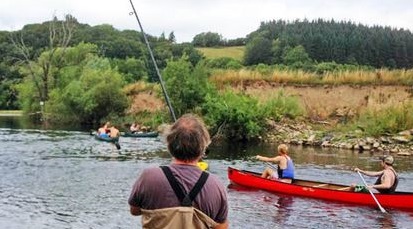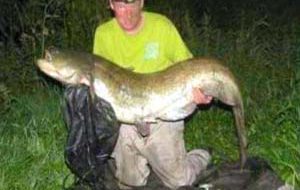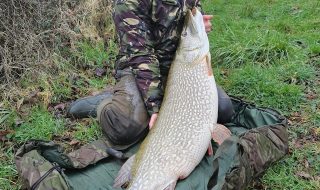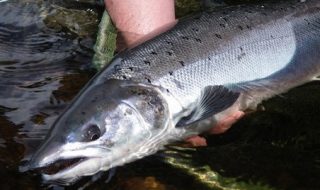The Angling Trust and Fish Legal have submitted a highly critical joint response to the Welsh Government’s consultation on the ‘sustainable management of natural resources’.
In particular, they challenged proposals to allow unfettered canoeing, kayaking and other paddlesports on all rivers in Wales which would destroy the value of fishing rights worth several millions of pounds and damage the already degraded water environment.
The proposals would also harm the Welsh economy, which benefits from substantial inward investment from angling tourists from the rest of the UK and around the world.
Many of the tens of thousands of anglers, angling clubs and fishery owners in Wales have contacted the Angling Trust and Fish Legal asking them to resist these proposals vigorously. Several angling clubs have taken out loans to pay for the property rights to fish; on many rivers an influx of boats would lead to declining membership and ticket sales with clubs being unable to keep up repayments. Many fisheries would simply cease to operate, as has been the case in Scotland. Even a few canoes on a small river can ruin fishing prospects for many hours after they have passed.
Similar legislation was introduced in Scotland in 2003, which is much more sparsely populated. It has many more and much larger rivers which are mostly further away from population centres than in Wales. This led to fishing ghillies losing their jobs and declining revenues for businesses reliant on visiting anglers who have stayed away from many Scottish rivers because they can’t fish in peace and quiet.
Article 1 of the First Protocol to The European Convention on Human Rights guarantees the right to the peaceful enjoyment of possessions which includes freehold and leasehold rights in fisheries. This dictates that: “No one shall be deprived of his possessions except in the public interest and subject to the conditions provided by law and by the general principles of international law.”
The proposed changes to the law would for all intents and purposes deprive many clubs and fishery owners of the right to fish which could lead to compensation claims for many millions of pounds.
The consultation suggests that Natural Resources Wales would be responsible for regulating canoe access, which is a laughable suggestion for an organisation which is already unable to take effective enforcement action against polluters in Wales, directly linked to a widespread decline in water quality and salmon and sea trout (sewin) stocks. The arrangements would be highly costly and burdensome to administrate, which runs counter to one of the principal objectives of the consultation.
The Angling Trust and Fish Legal support the existing policy of encouraging locally-agreed voluntary access agreements that allow paddlesports at times when they will not interfere with legitimate paid for angling rights or disturb spawning fish. The main reason that increased access has not been achieved is the perplexing resistance by Canoe Wales to agree to these reasonable restrictions.
Staff at the Angling Trust & Fish Legal found the consultation to be the most chaotic of any of the hundreds of similar documents they have read. There was little detail available about most of the proposals, some of which seemed to conflict with the stated objectives of the consultation.
Mark Lloyd, Chief Executive of the Angling Trust and Fish Legal, who travelled to Aberystwyth for a meeting with Welsh Government about the consultation in mid-September 2017 said: “This is the third time that Welsh Government has consulted on proposals to open up all rivers to canoeists by legislation. Private angling rights are mostly owned by angling clubs comprising working people whose families have enjoyed fishing on their local river for generations. These proposals would damage the Welsh economy, add another administrative burden to the already overwhelmed regulator and harm the environment.
“It’s hard to see how this contributes to the sustainable management of natural resources in any way. We call on Ministers to offer some reassurance to the Welsh angling industry by confirming that they will now kick this idea firmly into the long grass for good. That in turn might cause Canoe Wales to talk sensibly and reasonably to angling interests and riparian owners and by doing so achieve the greater access they seek but in a sustainable way with fewer confrontations on the riverbank.”
Download the Angling Trust and Fish Legal’s joint response to the Welsh Government Consultation






